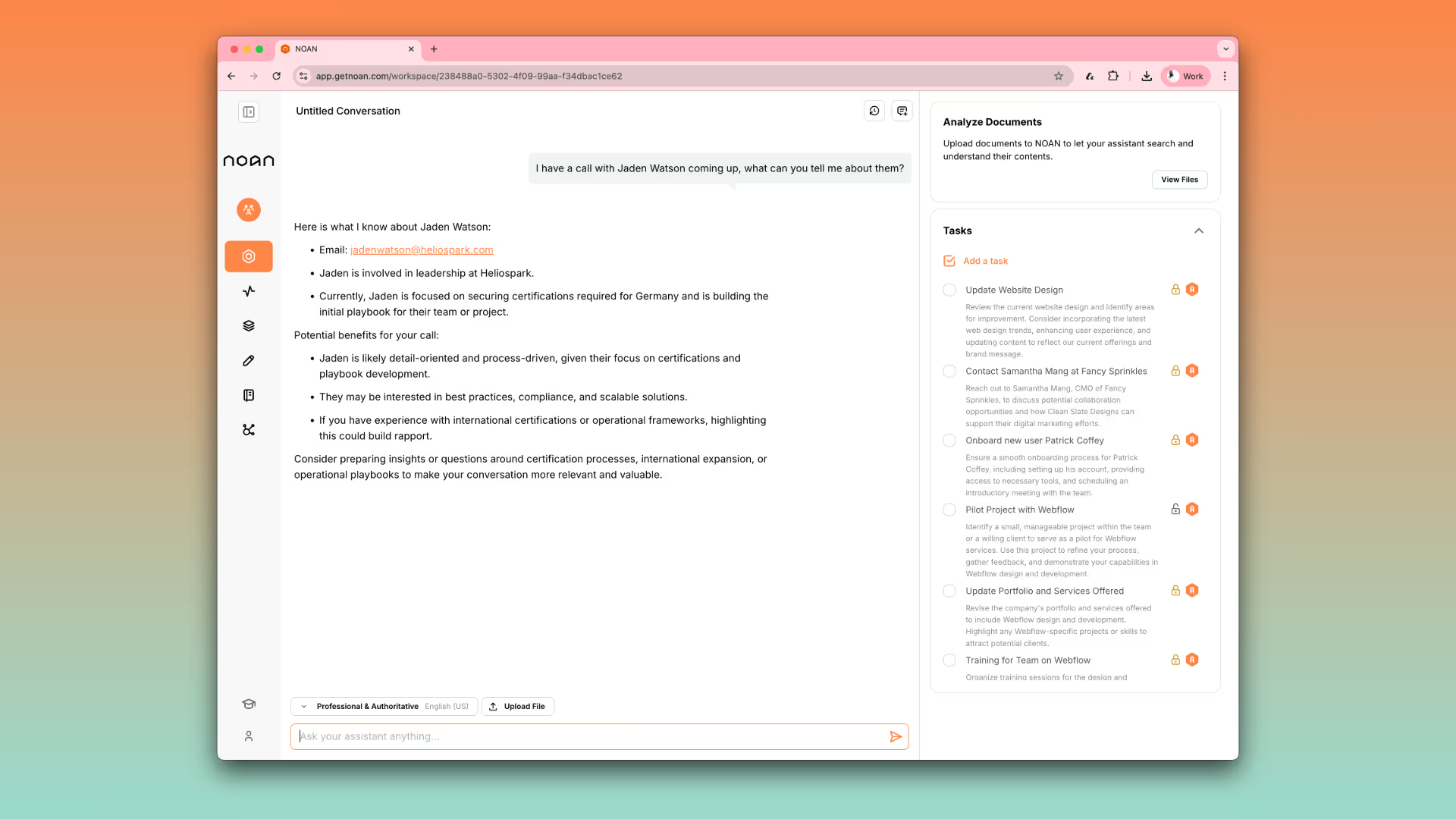AI for Knowledge Management: Revolutionizing Business Operations
Discover how AI is transforming knowledge management and revolutionizing business operations.

Knowledge management has long been a cornerstone of effective business operations. However, the traditional methods of managing knowledge often fall short in today’s fast-paced environment. Enter Artificial Intelligence (AI), a game-changer that promises to transform how organizations manage their knowledge assets. This article delves into the intersection of AI and knowledge management, exploring how AI can streamline processes, enhance decision-making, and ultimately lead to more efficient business operations.
The Need for AI in Knowledge Management
Organizations today are inundated with data. From emails to reports, the sheer volume of information can be overwhelming. This is where AI steps in, offering solutions that not only manage knowledge but also enhance its accessibility and usability.
Understanding the Knowledge Management Challenge
Many businesses struggle with disconnected knowledge. Information is often siloed across various departments, leading to inefficiencies and miscommunication. This disconnection can result in poor decision-making and wasted resources. AI can bridge these gaps by providing a unified platform for knowledge management.
AI as a Solution
AI technologies, such as Natural Language Processing (NLP) and machine learning, can analyze vast amounts of data quickly and accurately. By implementing AI-driven knowledge management systems, organizations can ensure that their teams have access to the most relevant and up-to-date information.
Key Features of AI-Driven Knowledge Management Systems
AI-powered knowledge management systems come equipped with several features that enhance their functionality and effectiveness. Understanding these features can help organizations make informed decisions about their knowledge management strategies.
Single Source of Truth
One of the most critical aspects of an AI-driven knowledge management system is the establishment of a single source of truth. This means that all information is centralized, allowing for consistent and accurate data access across the organization. With a single source of truth, AI can provide insights that are based on comprehensive and reliable data.
Connected Knowledge Systems
AI facilitates the creation of connected knowledge systems, where information is interlinked and easily navigable. This interconnectedness allows for seamless updates and ensures that changes in one area are reflected across the entire system. As a result, teams can work more collaboratively and efficiently.
Real-Time Insights and Analytics
AI can analyze data in real-time, providing organizations with immediate insights that can inform decision-making. This capability is particularly valuable in fast-paced environments where timely information is crucial. By leveraging AI for analytics, businesses can stay ahead of trends and make proactive decisions.
Implementing AI in Knowledge Management
Transitioning to an AI-driven knowledge management system requires careful planning and execution. Organizations must consider several factors to ensure a successful implementation.
Assessing Current Knowledge Management Practices
Before implementing AI, organizations should assess their current knowledge management practices. This assessment will help identify gaps and areas for improvement. Understanding existing workflows and information flows is essential for determining how AI can best be integrated.
Choosing the Right AI Tools
Not all AI tools are created equal. Organizations must choose tools that align with their specific needs and objectives. Factors to consider include scalability, ease of use, and integration capabilities with existing systems. Selecting the right tools will significantly impact the success of the AI implementation.
Training and Change Management
Implementing AI in knowledge management is not just about technology; it also involves people. Organizations must invest in training their teams to use new systems effectively. Change management strategies should be employed to facilitate a smooth transition and encourage adoption among employees.
The Future of AI in Knowledge Management
The future of knowledge management is undoubtedly intertwined with AI. As technology continues to evolve, so too will the capabilities of AI-driven systems. Organizations that embrace these advancements will be better positioned to thrive in an increasingly competitive landscape.
Emerging Trends
Several trends are emerging in the realm of AI and knowledge management. These include the rise of voice-activated interfaces, enhanced personalization of knowledge delivery, and the integration of AI with other technologies such as blockchain for secure data management.
Preparing for Change
Organizations must remain agile and open to change as AI technologies develop. This adaptability will be crucial for leveraging the full potential of AI in knowledge management. By fostering a culture of innovation and continuous learning, businesses can ensure they are ready to embrace the future.
Final Thoughts on AI for Knowledge Management
AI has the potential to revolutionize knowledge management, transforming how organizations access, share, and utilize information. By implementing AI-driven systems, businesses can overcome the challenges of disconnected knowledge and enhance their operational efficiency. As we look to the future, the integration of AI in knowledge management will not only streamline processes but also empower teams to make informed decisions based on real-time insights. The journey towards an AI-powered knowledge management system is not just a technological shift; it is a fundamental change in how organizations operate and thrive in the digital age.

.avif)


.avif)